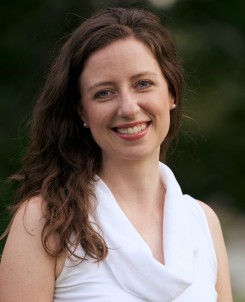On Friday November 8, the University of Toronto Students For Life (UTSFL) hosted an abortion debate, the topic of which was: “Is abortion harmful to women?” The debated featured Stephanie Gray, executive director of the Canadian Centre of Bio-Ethical Reform (CCBR) taking a pro-life stance, arguing against Dr. Fraser Fellows, who was speaking in favour of the pro-choice movement.

Stephanie Gray , executive director of CCBR. COURTESY OF THE CANADIAN CENTRE OF BIO-ETHICAL REFORM
During her 20-minute opening statement, Gray argued that abortion harms women, using the controversial model that links abortion to breast cancer as evidence. Gray also cited the risk of pre-term birth and the emotional damage done by “robbing a woman of her pre-born child” in her argument, backing up her views with a variety of epidemiological and psychiatric studies.
Fellows argued that abortion was helpful to women. He showed graphs demonstrating higher rates of maternal mortality in countries where abortion is illegal. “Abortion is a necessary requisite to providing health care to women,” said Fellows.
In the cross-examination part of the debate, Fellows said that he was disappointed with Gray’s endorsement of the connection between breast cancer and abortion, while Gray was dissatisfied with Fellows’s stance that the mother has the right to choose whether to abort a human being. Fellows’s rebuttal was that 75 per cent of Canadians support a woman’s right to choose. Gray rebutted that “abortions do not solve problems— they do not make a woman ‘un-abused,’ or ‘un-raped.’”
The CCBR takes the stance that abortion is wrong, contending that it constitutes the intentional termination of a human life. The organization has gained national media attention for its use of graphic images in its campaigns to end abortion in Canada.
In the past couple of years, the UTSFL has kept a low profile. Blaise Alleyne, education coordinator at the organization, said “The [UTSFL] has always been active, but as with any student club, activity rises and falls as leaders graduate and new members arrive.” Alleyne stated that the years from 2009 to 2011 were a period of much activity for the UTSFL, and is happy that the club “has become especially active” this year, with weekly meetings and a weekly outreach program, such as Aid to Women.
The debate was the last event of Life Week, a series of events aimed to raise awareness of the abortion issue. Although the UTSFL does not hold a debate or a Life Week every year, they often hold similar events. Diane Tam, president of UTSFL, stated that this year’s Life Week was not intended to change people’s minds. “We are confident in our pro-life stance, and hope that people will look at the evidence and come to that conclusion themselves,” she said.
Tam was pleased with the outcome of the event, and said that; “We did what we set out to do.” When asked about future plans for UTSFL, Alleyne said “we are looking at bringing new forms of activism to campus next semester.”

